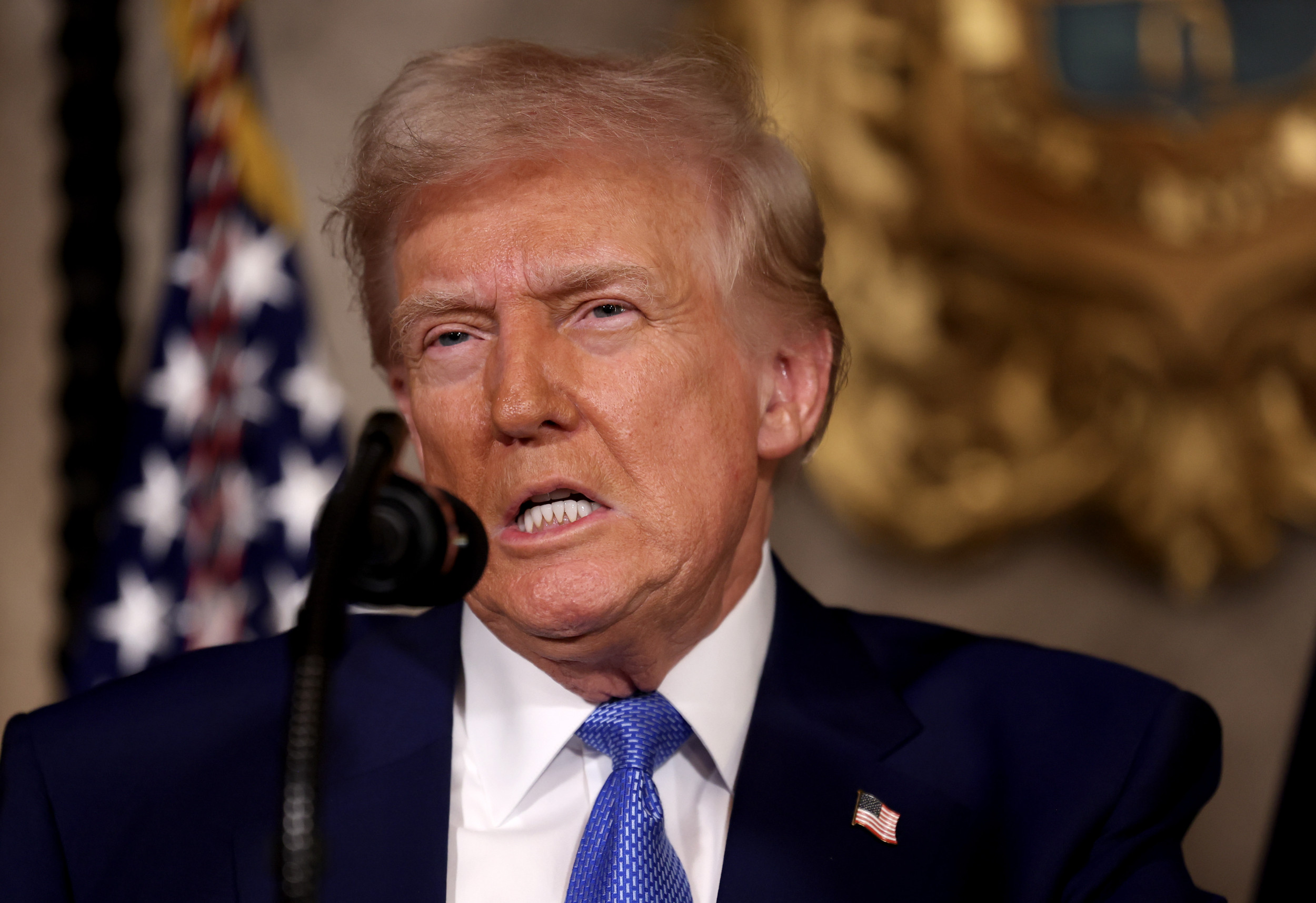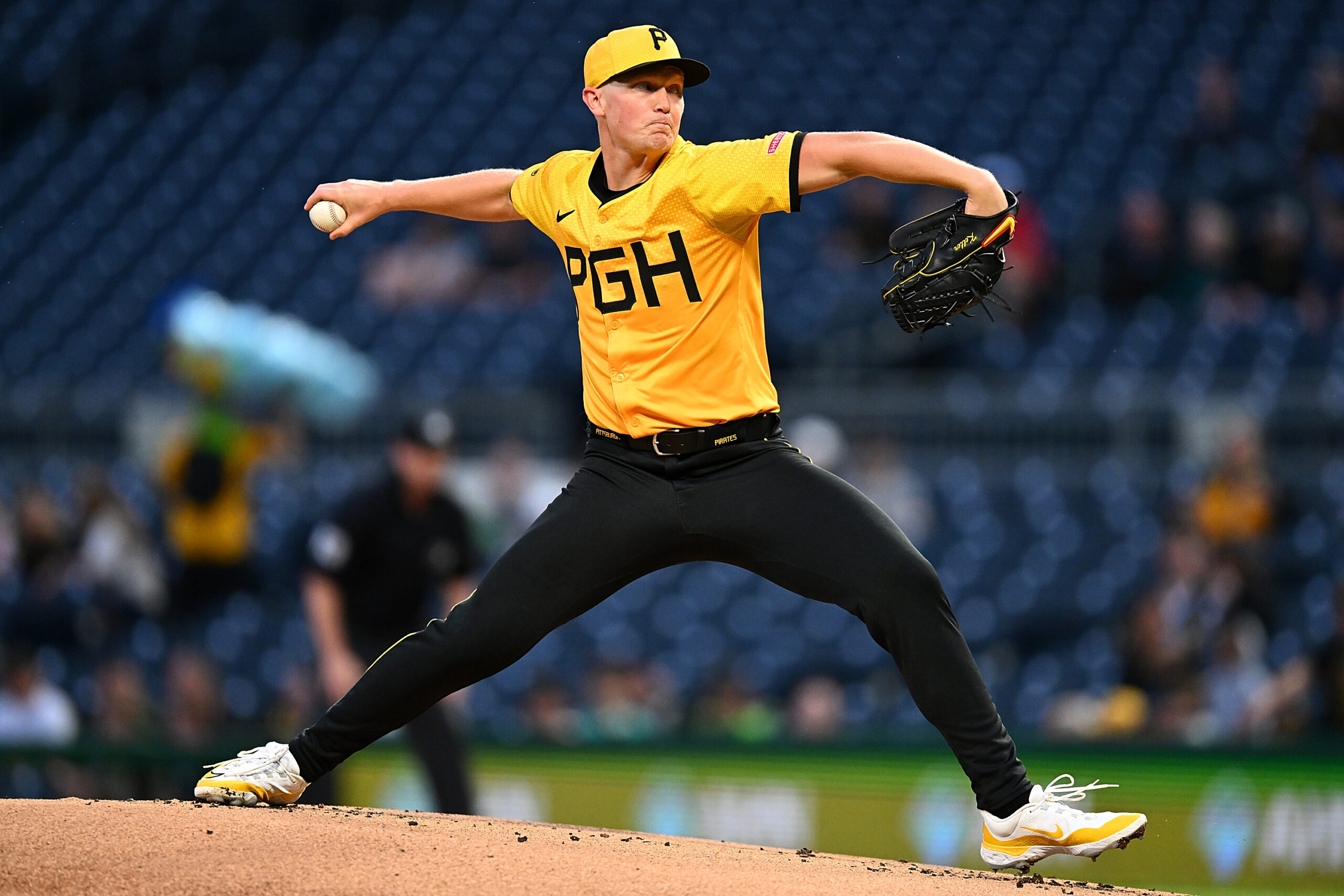
President Donald Trump has said he is considering sending 20 percent of the money saved by the Department of Government Efficiency (DOGE) directly to Americans.
Newsweek has contacted the White House for comment via email outside regular working hours.
Why It Matters
DOGE has been tasked, on the direction of the president, to scale back federal spending and root out supposed fraud and waste. The nonofficial, temporary initiative has said it has already saved billions of dollars since it began its audits of government agencies—though it has been met with considerable backlash and legal action.

Joe Raedle/GETTY
What To Know
On Wednesday, at the FII Priority Summit in Miami Beach, Trump said, “There’s even under consideration a new concept where we give 20 percent of the DOGE savings to American citizens, and 20 percent goes to paying down debt.”
On Tuesday, billionaire Elon Musk, who heads DOGE, wrote on X—his social media platform formerly known as Twitter—that he would “check with the President” regarding the proposal to send U.S. households tax refund checks funded by savings from DOGE’s cost-cutting campaign.
Musk’s comment came in response to a suggestion by James Fishback, the CEO of the Azoria investment firm, to compensate American taxpayers for “the egregious misuse and abuse of their hard-earned tax dollars that DOGE has uncovered.”
In a four-page proposal, Fishback said sending checks of $5,000 directly to American taxpayers would “restore public trust between taxpayers and their government, making good on this social contract and increasing tax morale.”
President Trump and @ElonMusk should announce a ‘DOGE Dividend’—a tax refund check sent to every taxpayer, funded exclusively with a portion of the total savings delivered by DOGE. 🧵 pic.twitter.com/p5AZZj3Ttc
— James Fishback (@j_fishback) February 18, 2025
Musk has previously said DOGE’s goal is to cut $2 trillion from the federal budget. According to Fishback’s proposal, after DOGE’s scheduled sunset in July 2026, all taxpaying households would receive a tax refund check derived by taking 20 percent of DOGE’s savings.
Fishback said only working American taxpayers should receive the “DOGE Dividend,” adding that “the prospect of a $5,000 DOGE Dividend in 2026 will incentivize many to re-enter the labor force in 2025 in order to be eligible” for the payment.
On Wednesday, Reuters reported that Fishback was in touch with the Trump administration over his proposal.
Checks being sent to every taxpaying household in the U.S. would be a first since coronavirus-era stimulus checks, which began during the tail end of Trump’s first administration.
Previous Stimulus Checks
During Trump’s first term, the government issued two rounds of COVID-related stimulus checks. In March 2020, the Coronavirus Aid, Relief, and Economic Security Act (CARES Act) provided Economic Impact Payments of up to $1,200 per adult for eligible individuals and $500 per qualifying child under age 17. These amounts were reduced for taxpayers who earned more than $75,000 per year.
In December 2020, as part of the Consolidated Appropriations Act, 2021, an additional $600 payment went out to eligible individuals.
In 2022, the Federal Reserve Board reported that the fiscal stimulus, which was distributed to households across the country, “contributed to an increase in inflation of about 2.5 percentage points.”
“Our findings suggest that fiscal stimulus boosted the consumption of goods without any noticeable impact on production, increasing excess demand pressures in good markets,” the report said. “As a result, fiscal support contributed to price tensions.”
Preston Brashers, a research fellow for tax policy at the conservative think tank the Heritage Foundation, wrote on X: “Love what DOGE is doing, but this is a bad idea. There’s no need to send ‘dividend checks.’ The dividend we get from slashing spending is that it brings inflation into check. But if the government sends out stimmy checks, inflation will come back with a vengeance.”
Fishback said in his proposal that the DOGE checks would not be inflationary as they would be “exclusively funded with DOGE-driven savings, unlike COVID stimulus checks which were deficit-financed.”
He also said the dividends would be “sent only to tax-paying householders, who have a demonstrated propensity to save (not spend) the incremental dollar received.”
According to Fishback, the “DOGE Dividend is different from past stimulus checks” as only taxpaying households would receive it.
“Tax-paying households are more likely to save (not spend) a transfer payment like the DOGE Dividend as consumption is a lower share of their income,” he said, adding: “There is nothing inflationary about paying off debt, saving for emergencies, or investing in college or retirement. In fact, debt paydowns are actually deflationary.”
What People Are Saying
James Fishback said in his proposal: “When a breach of this magnitude happens in the private sector, the counterparty, at minimum, refunds the customer since they failed to deliver what was promised. It’s high time for the federal government to do the same, and refund money back to taxpayers given what DOGE has uncovered.”
Elon Musk wrote on X: “Obviously, the President is the Commander-in-Chief, so this is entirely up to him.”
Alex Beene, a financial literacy instructor for the University of Tennessee at Martin, previously told Newsweek: “While a future stimulus check isn’t impossible and certainly could be seen as a goodwill gesture to show taxpayers of all the supposed money that’s been saved with these cuts and aid as financial support during high inflationary times, the unfortunate reality is odds of checks being sent out are fairly low.
“Even with the potential savings of recent cuts, stimulus checks are an incredibly expensive endeavor for a government already deeply in debt and facing no pandemic-level emergency to undertake. I would expect legislators will hold out hope of new proposals like tax cuts and less restrictions on some government benefit programs as a way to steer eyes away from stimulus checks being the sole way to help Americans.”
What Happens Next
Fishback’s proposal remains in its early stages and would require congressional approval before any checks are issued. According to the proposal, if approved, the payments would come to American households in 2026.





